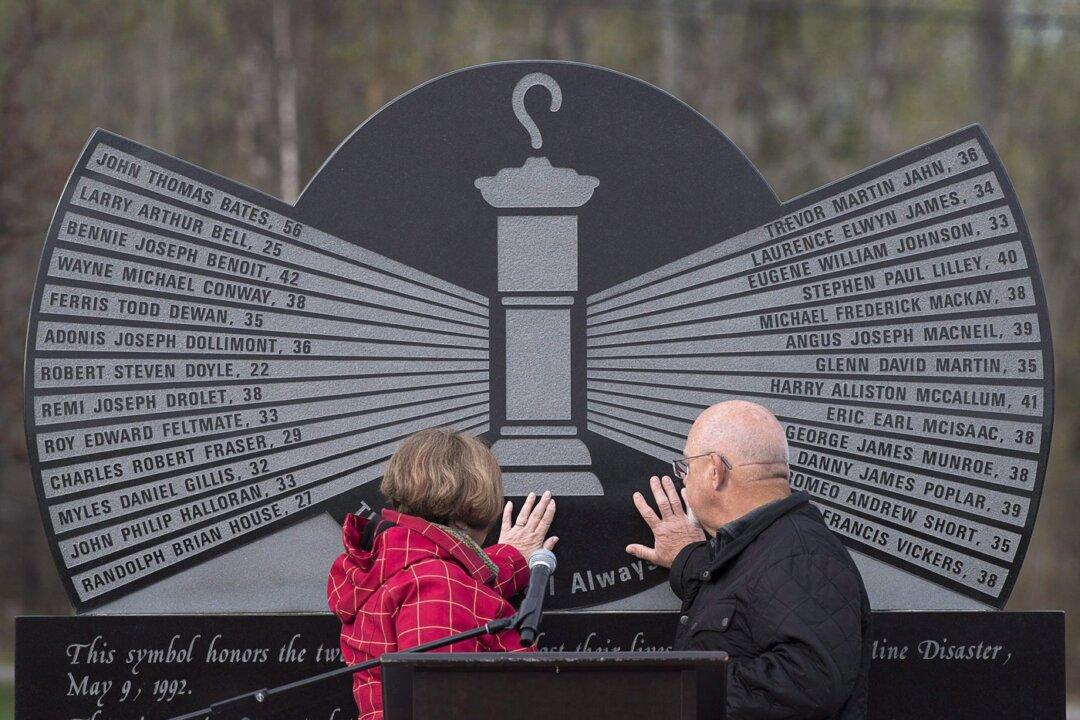Family members who lost loved ones in the Westray coal mining disaster will mark the 30th anniversary today in a ceremony at a memorial park in New Glasgow, N.S., not far from the mine.
Genesta Halloran-Peters, who will give an address at the gathering, says the loss of her husband John Halloran had a huge impact on the direction of her life and the lives of her two children, with his absence felt “on every special occasion.”





